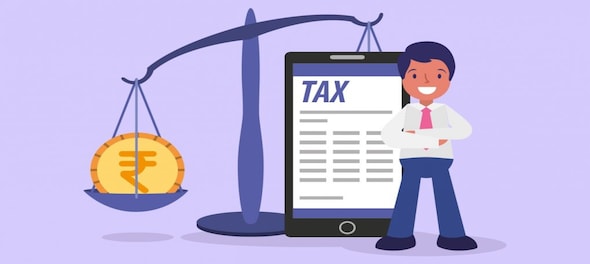
Finance Minister Nirmala Sitharaman mentioned in her budget speech that It is almost impossible for a taxpayer to comply with the Income tax law without taking help from professionals and in order to simplify the law, she proposes a new personal income tax regime which is optional in addition to the existing one. On the contrary, a taxpayer will need more professional help for selecting the suitable option given two choices. Her new optional Income Tax regime which basically forgoes exemptions for lower tax rates has put the taxpayers in dilemma whether to opt for the new one or stay in the older one.
The new tax structure has introduced new slabs between the Rs 5 lakh and Rs 15 lakhs where the rates applicable to each slab are lower as it may be seen in the table below:

An analysis of the tax slabs paints a totally different picture and instead of a tax benefit, there is a clear additional tax burden. If we consider a person earning Rs 15 lakh a year and not availing any deductions he would have a tax liability of Rs 1.95 lakh as per the new regime (wherein he forgoes all deductions) indicated by the FM as compared to Rs 2.73 lakh earlier which is a clear saving of Rs 78,000.
However, that is not the case because the salaried employee would under the old regime avail the flat standard deduction of Rs 50,000. In addition, he would have tax exemption on his HRA if rent is paid. In case the employee has taken a loan to purchase a house he gets dual benefits. Deduction of principal from his gross income as well as tax benefits on interest paid. It is very unlikely that an individual earning Rs 15 lakh per annum may not have bought insurance or not investing any tax saving scheme like PPF, Sukanya Samriddhi Yojana or ELSS. Also, currently interest income up to Rs 10,000 in a financial year from saving bank account can also be considered as tax free after claiming deduction u/s 80TTA. The taxpayers will lose the benefit if they opt for the new tax regime and it will be taxable at the tax rate applicable to them considering their overall income during the financial year.
For example, a salaried individual earning Rs 15 lakh per annum will pay an income tax of Rs 1.95 lakh in new regime compared to Rs 1,23,600 after considering the benefit of standard deduction if he opts for old tax regime assuming that he invests Rs 1.50 lakh in various tax schemes u/s 80 C of Income Tax act, additional Rs 50,000 in NPS u/s 80 CCD (1B) of income tax act, pays a premium of Rs 25,000 for a health insurance plan and pays Rs 2 lakh towards the interest against the home loan he has availed for the house he purchased for his personal use.
More administrative work
The optional tax regimes will put an additional burden on HR and will become an administrative nightmare. Employees earning more than Rs 5 lakh will have to decide on the tax regime they would want to choose. HR departments would require setting up counseling centres to explain to employees the pros and cons of choosing a particular path. Though you have the choice to consider the option in your interest at the time of filing your Income Tax Return, yet your employer may not allow you changing the option during the financial year once selected in the beginning.
Whatever process the HR department chooses it is very clear that this will add to the administrative work and the FM’s claims of simplifying tax apparently go up in smoke. Secondly, freshers and employees in lower tax brackets may feel that there is no incentive for tax saving and may opt for the new regime. The mandatory saving not only helps in tax saving but also develops saving habits in young taxpayers that helps in long term wealth creation.
From April 1, 2020 all dividends paid to shareholders will be taxed in the hands of investors at their applicable slab rates. Hence, FM has moved the liability of paying tax from the firms to the investors. Though it is in the interest of investors especially who are in lower tax bracket, yet the calculation will be little complicated, and it may require professional help. Moreover, the Finance Bill introduces TDS (Tax deduction at source) on both capital gains and dividend income from mutual funds. The TDS of 10 percent would be applicable for dividend income received from one fund house in a financial year exceeds Rs 5000.
Pankaj Mathpal is the managing director of Optima Money Managers Pvt Ltd.
First Published: Feb 3, 2020 8:49 PM IST
Check out our in-depth Market Coverage, Business News & get real-time Stock Market Updates on CNBC-TV18. Also, Watch our channels CNBC-TV18, CNBC Awaaz and CNBC Bajar Live on-the-go!


PM Modi, Rahul Gandhi election rallies in Delhi today: Here are the routes to avoid
May 18, 2024 11:28 AM
Celebrity Kangana vs 'royal' Vikramaditya on Himachal's Mandi seat: Clash of richest titans
May 18, 2024 11:11 AM
2024 Lok Sabha Elections | Will Amethi and Rae Bareli see the rise of Priyanka Gandhi as a dominant political figure
May 18, 2024 8:59 AM
Lok Sabha Election 2024: I.N.D.I.A. bloc to hold rally at Mumbai's BKC today
May 17, 2024 5:18 PM

